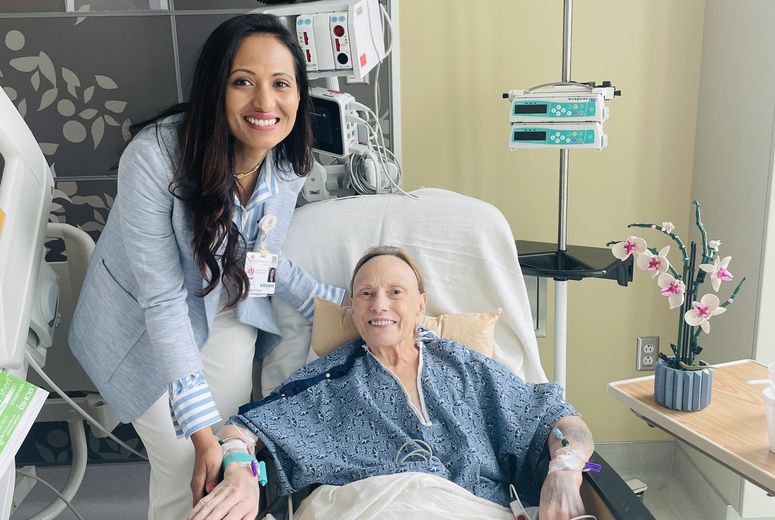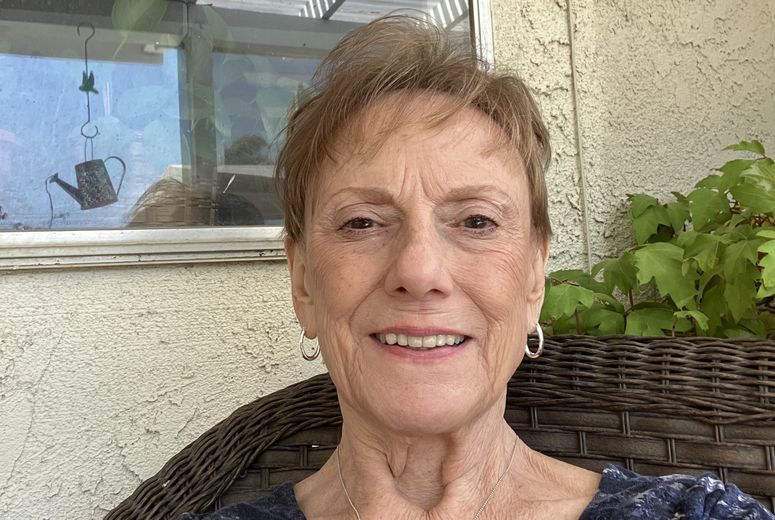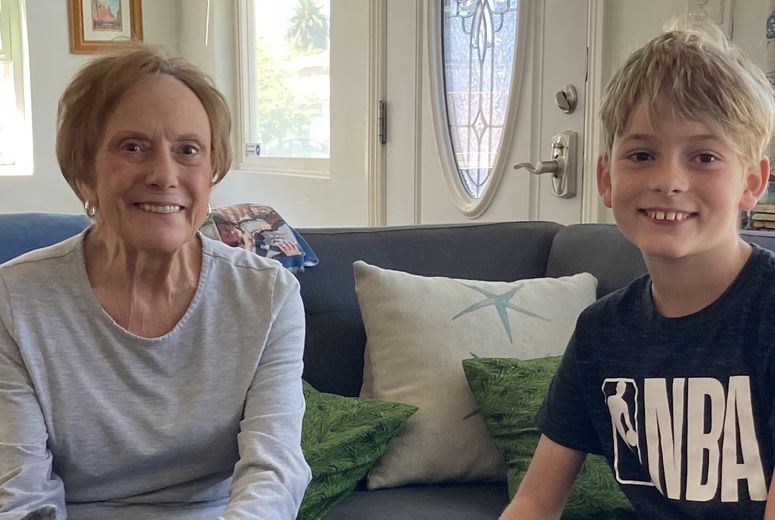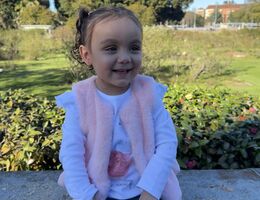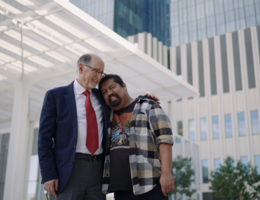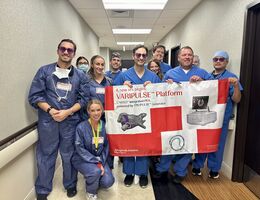
Rosemary Angelus, far left, celebrates friend's 98th birthday party.
Rosemary Angelus, 79, recently triumphed over a severe cardiovascular condition with the help of Loma Linda University Health's nearly all-female cardiology team led by Pooja Swamy, MD, an interventional cardiologist and vascular specialist at Loma Linda University International Heart Institute.
Angelus, a spirited woman with a history of severe peripheral vascular disease since her forties, had been experiencing worsening symptoms of angina and shortness of breath. Despite her condition, she remained active. However, her symptoms were often overlooked by a physician outside of Loma Linda University Health, a common issue with female patients who describe fatigue and shortness of breath without the typical chest pressure associated with heart problems.
Read: The truth about heart disease in women
After consistent doctor visits to discuss chest pain, especially unbearable at night, external physicians performed an EKG and treadmill test with negative results.
Angelus' situation became critical in January when she experienced severe swelling, difficulty walking, and shortness of breath, leading to an emergency room visit and a four-day stay. Extensive blood work revealed a heart problem. She then completed a lung test to determine what her lung capacity was and if they were strong enough to undergo a bypass and operate on their own after being on a ventilator. Negative results led external surgeons to opt out of performing an open-heart surgery or bypass due to Angelus being high risk. She was then referred to Loma Linda University Health.
"I complained about chest pain for over a year. They passed it off as acid reflux," Angelus said. "I was so swollen I couldn't walk or breathe."
Experts suspected she was having a heart attack. An echocardiogram revealed reduced heart pump function and an angiogram showed blockages in her heart arteries.
Angelus' case was further complicated by her peripheral vascular disease, making standard procedures like angioplasty through the radial artery unsuitable. "Her arteries were already diseased, and previous interventions had made the usual access points unusable," Swamy said. "The cardiothoracic surgeons at her initial institution deemed her too high-risk for surgery due to her age, frailty, and comorbid conditions like COPD."
Swamy and her team reviewed her case and decided to use a specialized heart pump, the Impella, inserted through the axillary or subclavian artery in the chest – a less common and technically demanding approach.
Swamy used the chest artery access because her groin arteries were unsuitable. This approach involved inserting the pump to support her heart during a complex coronary intervention, which included calcium modification to break up the calcium deposits and open up her arteries.
"Had her symptoms been recognized sooner, her condition would not have been as high-risk and complicated to treat," Swamy said.
Despite the risks, the procedure was successful. Angelus' heart function was critically low, barely moving. Still, Swamy's team managed to stabilize her condition and were able to wean her off the pump and close the artery without complications.
One of the remarkable aspects of Angelus' treatment was the near-complete female cardiology team that took charge of her case. In a field where only about 13% of cardiologists in the United States are women, this was a significant and empowering experience for both the patient and the medical professionals involved.
"This case exemplifies the skill and dedication of our team. Female interventional cardiologists are a small percentage of the field, and this success demonstrates our capability and the need for more women in this specialty."
Swamy also emphasized the importance of recognizing and treating cardiovascular symptoms in women, who often present differently than men. "Symptoms like fatigue, shortness of breath, and abdominal discomfort should not be overlooked, especially in women with a history of peripheral vascular disease."
Angelus is active and engaged in her community. She leads a vibrant life as an elder in her church and a treasurer for her women's organization. "I'm very active. I spend lots of time with my friends and participate in church activities," she said. With children, grandchildren, and friends traveling to care for her through recovery, she is immensely grateful for her support system.
"I had so many people praying for me," Angelus said. "I totally believe it was God's doing through Dr. Swamy's hands that saved my life."
LLU Women's Heart Health Clinic provides complete cardiovascular disease care uniquely tailored for women. World-class heart specialists and surgeons help you understand your risk and navigate the prevention, detection, and treatment of heart disease. Find more information online or call 1-800-468-5432 to schedule an appointment.

